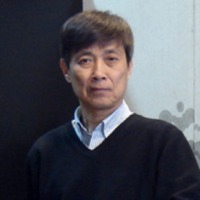Degree(s)
M.A., Ph.D., University of Michigan
Research
Classical Chinese poetry; Song dynasty literati culture; literary theories; stylistic analysis of the Zhuangzi text
Works
Publications
- “Secret Laid Bare: Close Reading of Chinese Poetry,” Journal of Chinese Literature and Culture, volume 9, issue1 (April 2022): 47–78.
- “Six Dynasties Informal Prose: A New Account of the Tales of the World,” in Zong-qi Cai, ed., How to Read Chinese Prose, New York: Columbia University Press, 2022, pp. 181–209.
- “Literary Analysis of ‘Letter to Wu Zhi,” “Literary Analysis of ‘Preface to the Poems of the Orchid Pavilion Gathering,” and “Literary Analysis of ‘An Account of the Peach Blossom Spring,’” in Jie Cui, et al., eds, How to Read Chinese Prose in Chinese, New York: Columbia University Press, 2022, pp. 189–190, 237–238, and 246–247.
- “How Does His Story Become Others’ Stories, and How Does the Historical Turn ‘Histrionic’?: The Evolution of the Story of Jing Ke,” Journal of Sino-American Humanity Issue 6 (November 2021): 13–25.
- “Cumulative Structure in Zhuangzi’s ‘The Great and Venerable Teacher’,” Journal of Chinese Literature and Culture, Volume 8, issue 2 (November 2021): 239–260.
- “Xushi wenhuaxue yanjiu zhong de Zhongguo xueshu jingshen” 叙事文化学研究中的中国学术精神 (Towards A Thematology with Chinese Characteristics), Journal of Nankai University 南开大学学报 2020.3 (May 2020): 128–138.
- Lü Huiqing Zhuangzi quanjie 吕惠卿庄子全解(点校本)(The Complete Interpretive Commentary on the Zhuangzi by Lü Huiqing [punctuated version of the ancient text]), Shanghai: Commerce Publishing House 商务印书馆, 2018.
- “Heroes from Chaotic Times: The Three Caos,” in Zong-qi Cai, ed., Chinese Poetic Culture from Antiquity through the Tang, New York: Columbia University Press, 2018, pp. 99–115.
- “How Does an Objective Correlative Objectify? West Lake as the Site for Patriotic Sentiment in the Southern Song Dynasty Song Lyrics,” in Joseph Lam, et al., eds., Senses of the City: Perceptions of Hangzhou & Southern Song China 1127–1279, Hong Kong: The Chinese University Press, 2017, pp. 205–233.
- “Xungen youyu, shuzao ciyuan—Zhan Antai wenxue piping yu ‘wenti fenxi’” 寻根遊语、疏凿辞源—詹安泰文学批评与“文体分析”(Towards Stylistic Analysis: Zhan Antai’s Text-based Literary Criticism), Journal of Sun Yat-sen University 中山大学学报 Vol. 51.6 (November 2011): 55–62.
- “Songdai shidafu wenren de fan ‘su’ xinjie” 宋代士大夫文人的反“俗”心结 (Song Dynasty Literati’s Obsession with the Issue of “Elegance” vs. “Vulgarity”), Journal of Literature, History & Philosophy 文史哲 2009.6 (November 2009): 82–91.
- “Zhuangzi the Poet: Re-reading the Peng Bird Image,” Dao: Journal of Comparative Philosophy, 2009.3 (September 2009): 233–254.
- “Ci Poetry: Long Song Lyrics (manci),” in Zong-qi Cai, ed., How to Read Chinese Poetry: A Guided Anthology, New York: Columbia University Press, 2008, pp. 262–285.
- “Qu Poetry: Song Poems (sanqu) of the Yuan Dynasty,” in Zong-qi Cai, ed., How to Read Chinese Poetry: A Guided Anthology, New York: Columbia University Press, 2008, pp. 329–353.
- “Song Literati and Literary Snobbery,” in A. K. Ogloblin, et. al., eds., Problems of Far Eastern Literatures, Saint Petersburg: Rose of Peace Publishing House, 2004, pp. 72–96.
- “The Old Drunkard Who Finds Joy in His Own Joy: Elitist Ideas in Ouyang Xiu’s Informal Writings,” Chinese Literature: Essays, Articles, Reviews 23 (2001): 1–29.
- The Wild and Arrogant: Expression of Self in Xin Qiji’s Song Lyrics, New York: Peter Lang Publishing, Inc., 1999.
- “Re-dreaming the Butterfly Dream,” Journal of Modern Literature in Chinese 3.1 (July 1999): 103–129.
- “Different World, Different Wu Song,” Newsletter for Research in Chinese Novels 33 (March 1998): 8–19.
- “Ou-Mei Rulin waishi jiegou yanjiu pingjie” 欧美《儒林外史》结构研究评介 (Structural Study of Rulin Waishi: A Critical Survey), Ming-Qing xiaoshuo yanjiu 明清小说研究 1997.1:75-84.
Other
Honors & Awards
Charles A. Brickman Teaching Excellence Award, Denison University, 2010-2011
